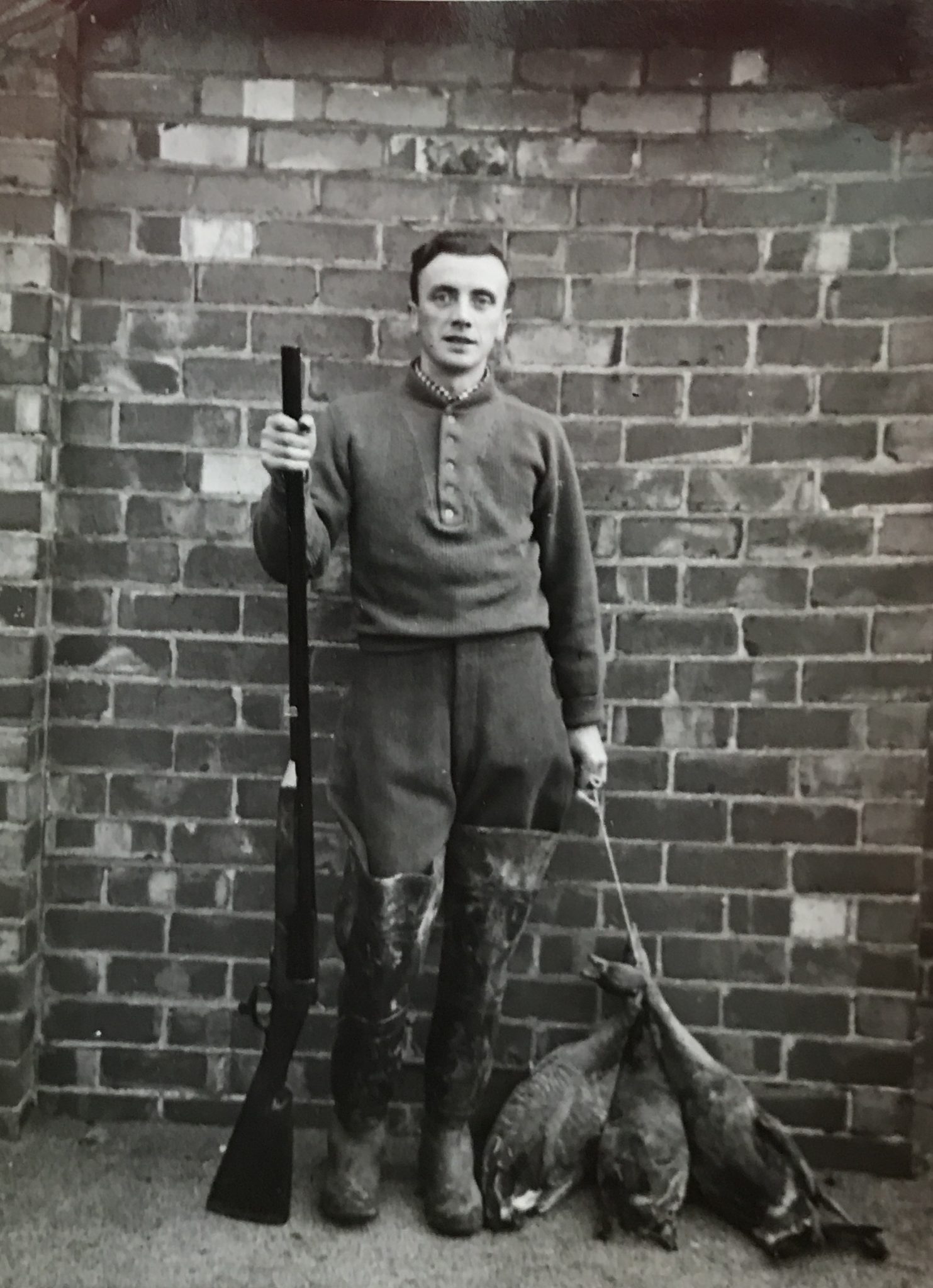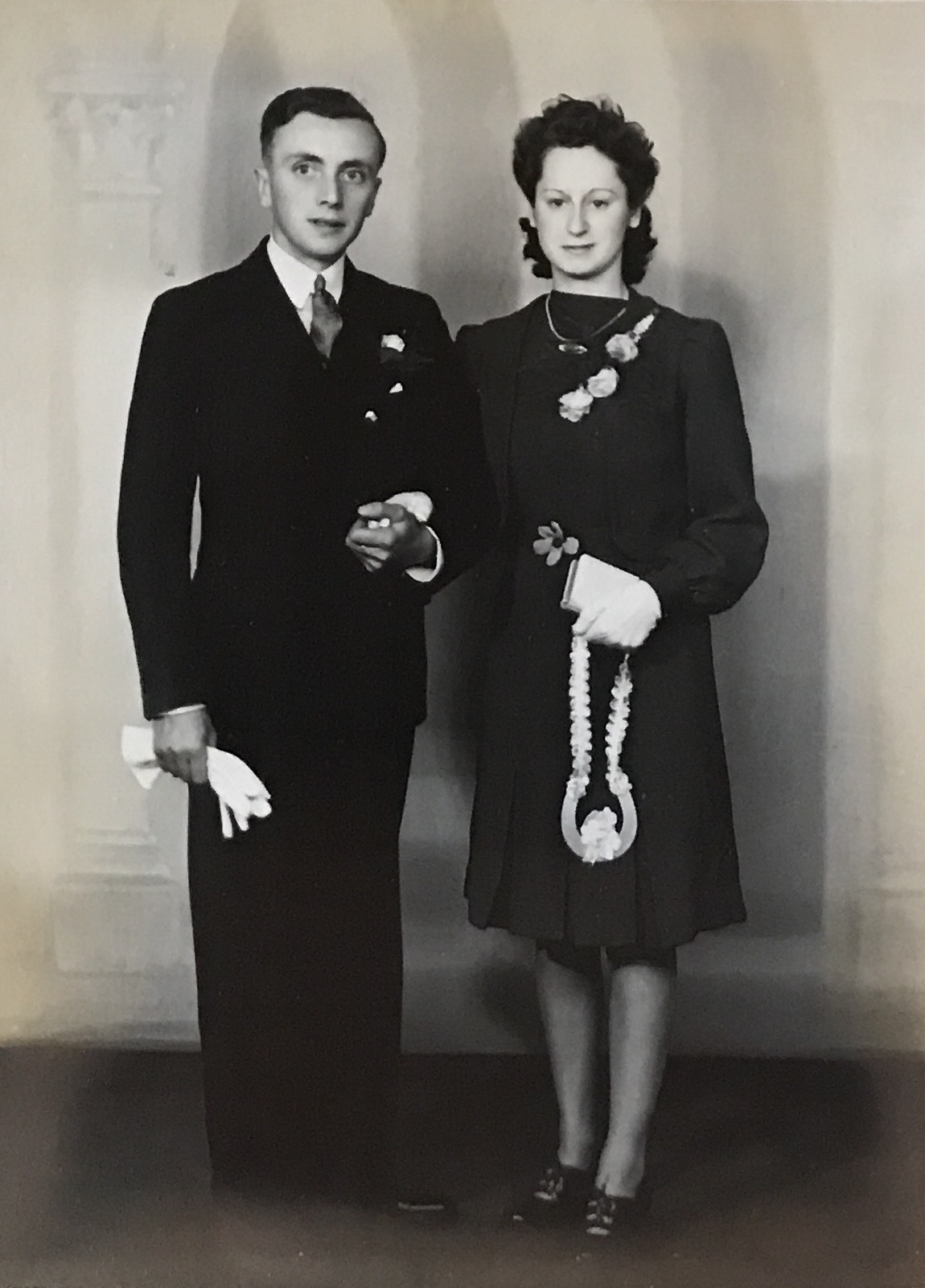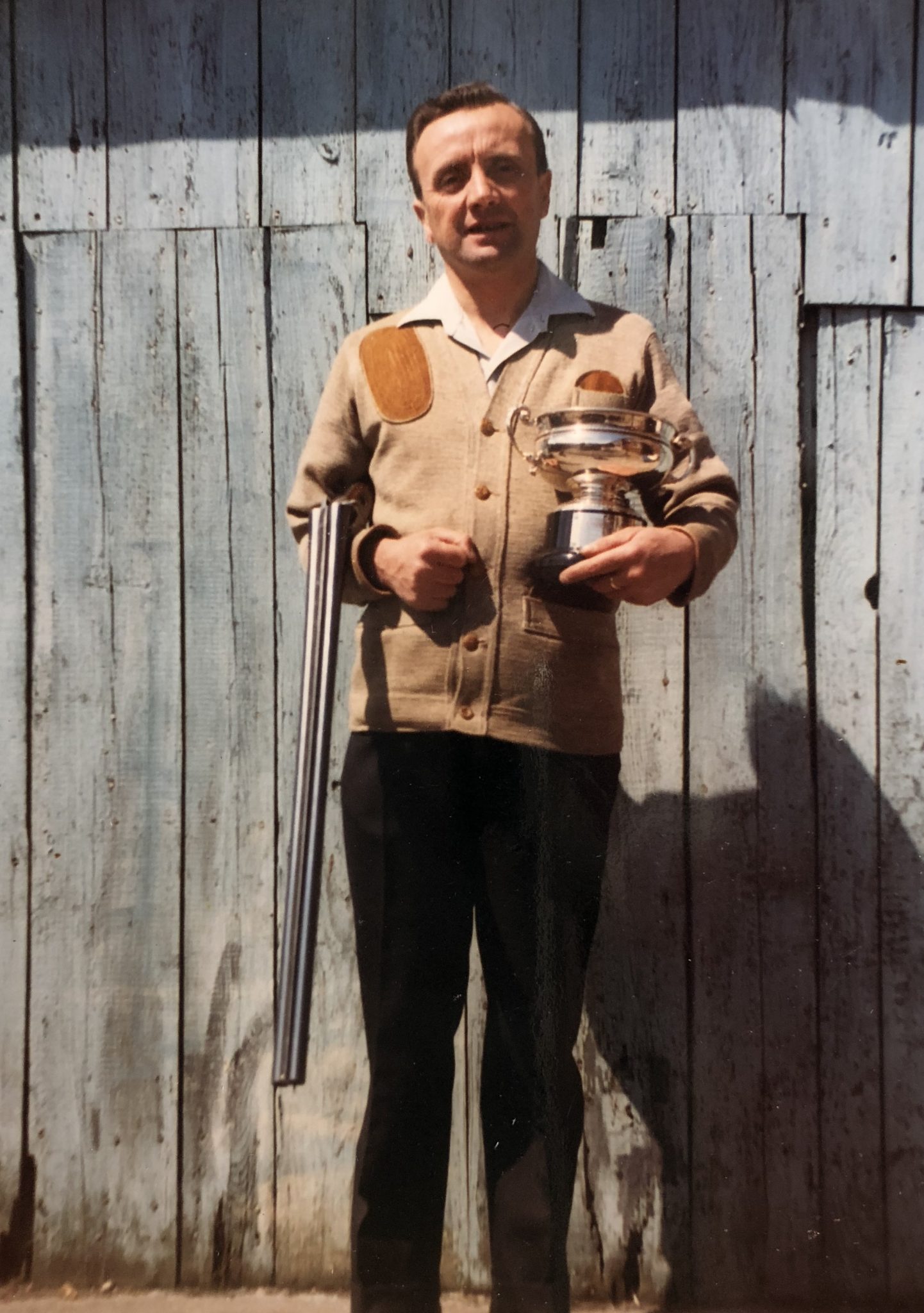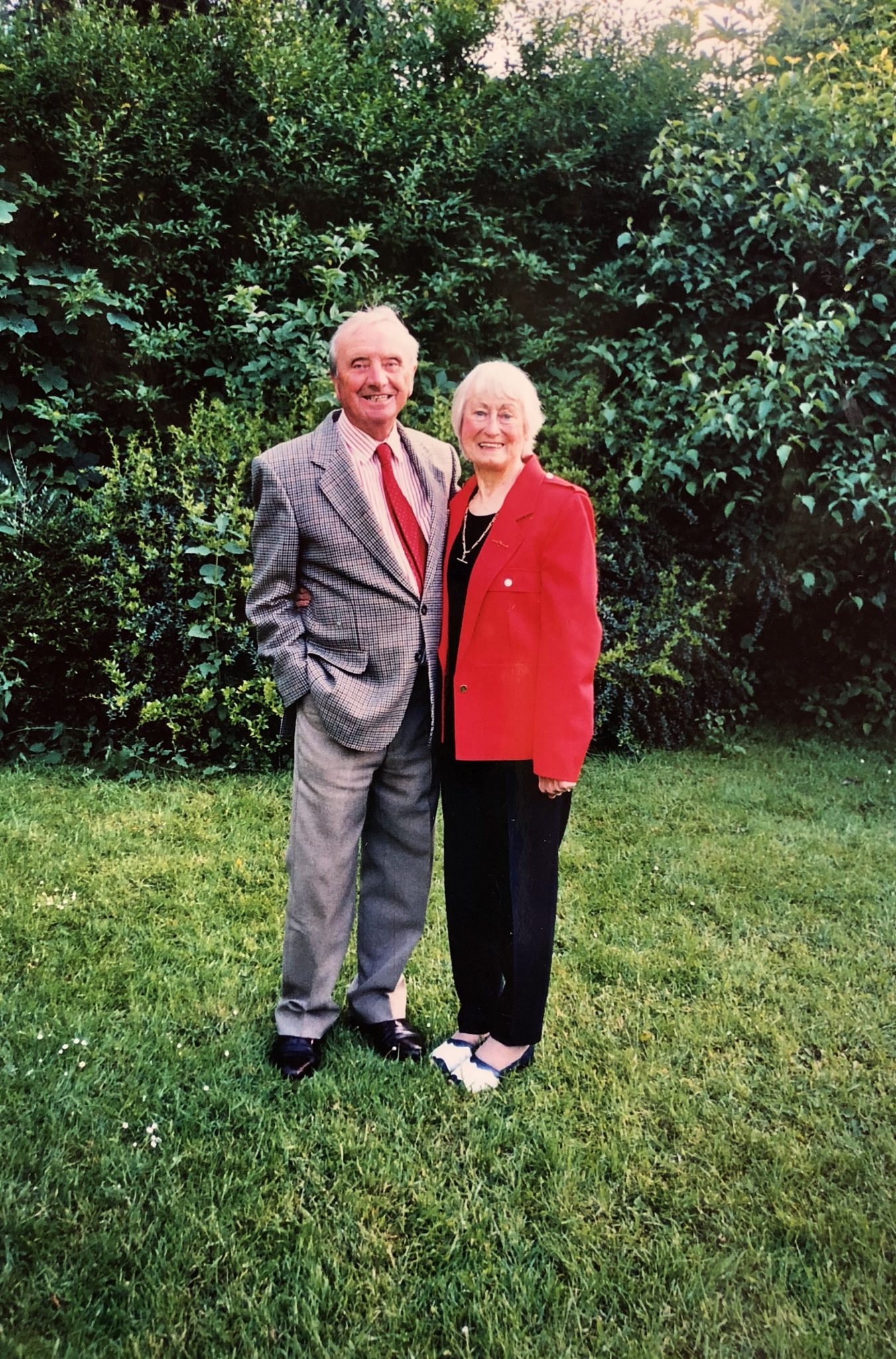ALAN WILBERT JONES
10TH JANUARY 1920 – 3RD JULY 2018
Alan Wilbert Jones was born on 10th January 1920 at Halse Copse Hall in Brackley, Northamptonshire, the son of farm manager William Jones and his wife Bertha, and younger brother to Lesley who was 6 years his senior.
Alan enjoyed his early childhood and had many happy memories of his first few years, which centred largely on life in a remote rural setting. At the age of two Alan and his family moved to Barrowmore Hall in Cheshire where he had his own pet goat, and where he remembered being in awe at the sight of a kestrel hawk in the sky, and collecting birds’ eggs, sparking what was to become a life-long passion for birds.
As happy as Alan remembers his time at Great Barrow, the family’s time there was short lived. Improvements to the nearby war veterans’ hospital included the laying of new sewage pipes through the farm’s land, and the entire family contracted a serious illness that resulted in the 4 year old Alan being bed-ridden for 7 weeks, with concerns that he might not pull through. The family were awarded damages, but decided that they simply had to move away.
The following 12 months must have been difficult, as with no home and no steady work, the family were forced to divide. Bertha and Lesley went to live with relatives in Latchford near Warrington, and William went to his sister’s farm at St Michael’s on Wyre, taking Alan with him. Although Alan had started school in Great Barrow, he was not yet fully recovered from his illness, and did not continue to attend school at this time. Instead, he spent the next year exploring the farm, with a catapult in his pocket and his little dog ‘Bim’ by his side, a loyal companion that he would fondly remember for the rest of his life. From this point forward he always had a dog, and shared a special connection with them throughout his life. His last dog Jesse was given to him by Anna – a truly wonderful gift that he treasured.
After a year, his father took tenancy at nearby New Hollins Farm, and the family were reunited, and a couple of years later would move to Woodcock Farm in Eccleston, where they were to settle for the next 26 years.
Alan attended the village school until the age of 14 when he began work on the farm. It was during these years of his life that he met Alice Bamford, who also lived in the village. After a 5 year courtship they were married, an event that very nearly did not take place at all. Alan asked Alice to buy him some arsenic to use as pest control on the farm, and he accidentally poisoned himself with it. He almost died, and the wedding had to be postponed, but thankfully he did make a full recovery, and on 1st June 1944 the wedding went ahead here in this church, and they went on to enjoy nearly 70 years of very happy marriage together.
War broke out in 1939, when Alan was 19. He would have been called up, but as a farm hand, was needed at home to play his part in the war effort. The hours were long and the work was hard – with no machinery to help everything had to be done by hand. But he considered himself lucky to stay at home in the countryside, as they were never short of food, and he could provide for others with birds he had shot and fruit and vegetables he had grown. He used his skills as a shooter when he was tested for a position in the Home Guard. He described being taken out into the fields, where he was told there were people hiding, and he was asked how many people he could see. He scanned the horizon and the hedgerows, much like he would when hunting, and he counted nine. It transpired he had only missed one – the one that was lying on the ground only 10 feet away. None of the others tested spotted nine, and as such he was made Chief Scout.
It was also during the war, that Alan’s entrepreneurial spirit was nurtured. They were instructed to plough the land on the farm, in order to grow corn, turnips and potatoes. But on top of this, Alan had ideas to utilise unused areas of the farm growing lettuces, and was encouraged by his father, and aided by his fiancée Alice. Together they spent their evenings and weekends tending the lettuces instead of going out dancing, but it paid off and the scheme was a great success. The year after that he grew cauliflowers and cauliflower plants. He sold every single one, and to his father’s pride and disbelief, made more profit on the cauliflowers alone than the rent for the entire farm for that year.
At this time he attended an auction and bid on a 10 acre plot of farmland on Parr Lane, but was outbid by a small margin. If he had won it his life might have turned out very differently, but from the age of 16 he had also been buying and selling secondhand shotguns from the farm, and this was the route his career would eventually take, incorporating this venture into his father-in-law Rafe’s business in the mid 1940’s, something he was only given permission to do after his marriage to Alice had taken place. Alan also got involved in Rafe’s funeral car hire, driving for all the local undertakers of the time.
The business went from strength to strength, and by 1970, when the CLA Game Fair came to Tatton Park, Alan and Alice decided to take a small stand with 30 guns. It was deemed a success, and they continued to buy a show unit and spent the next 20 years until retirement travelling the length and breadth of the country attending country shows, while Lawrence ran the shop back at home.
Following in his father’s footsteps, Alan was a keen shot from an early age. He began with catapults as a small child, then moved onto air rifles, and by the age of 15 was out in the fields with his father’s shotgun. He spoke with great passion and excitement about his adventures in wildfowling in particular. He borrowed a 4 bore hammergun for the purpose, from the Commandant at Altcar Rifle Range, and to his disbelief, shot two geese with a single cartridge the first time he pulled the trigger. Shooting was a passion that he would pass on to his son Lawrence, who he encouraged in the sport from an early age, and something that they would share throughout their lives. He was also a keen fisherman and all-round countryman, always enjoying the outdoors and nature.
In 1961, at the age of 41, having established an interest in the Freemasons whilst driving them to meetings as part of his work with the hire cars, Alan heard that a new Eccleston Lodge was being formed, and was backed to become a member. It was at this point that he was initiated, and another significant chapter of his life began. After ten years, in 1971, he took the Chair at Eccleston Lodge, and shortly after that, was asked to be a founder member of a new Lodge at Chorley, to be called Blainscough Lodge. He took up that role and was Director of Ceremonies, again taking the Chair shortly after. In more recent years, relying on his breadth of experience, he was asked to take the role of Mentor for the new men joining the Freemasons. This is a role in which he enjoyed spending time getting to know the new members and he took pride in the fact that they knew they would be looked after upon attending. He always looked back fondly on Masonic meetings and was very proud of the work they did, helping people in need.
Alan was a man of great honesty, integrity, heart and compassion. He will be greatly missed by all those that had the honour of knowing him, and whose lives he touched. He leaves behind his son Lawrence, granddaughters Sky and Hayley, and three great-grandchildren. They, and indeed all of us here, will forever keep our own special memories of him.
BY THE RIVER KENT
BY ALAN W. JONES
Mid-morning sun dispels the mist
And drives the dew from grassy field.
A little lost lamb’s plaintive bleet
Brings swift response from faithful sheep.
To favourite pool by riverside path
We make our hopeful way.
Joggers scarcely pause in passing the time of day;
Others just stroll, whiling time away.
The winter floods have done their work –
Beneath the water on the bed
Rounded stones are shining clean;
Lovely pastel shades are clearly seen.
An electric flash of blue and green –
A kingfisher on its way downstream.
A dipper dips with wild delight,
Just overhead three mallard flight.
Reel to rod is firmly fixed
And to the line a fly is tied.
Now to test new season’s luck.
My, it’s good – an instant pluck!
When on the bank it’s very plain
That this fish must not be slain.
There’s no need for mercy plea –
Put back in river, it’s off to sea.
On we tread to Bluebell Wood
Where curving boughs sweep low
To shield the lies from prying eyes,
Or snatch some careless angler’s flies.
By far bank on rocky ledge,
Like graceful dancers on a stage
Two yellow wagtails strut and turn
‘Twixt catching insects o’er the burn.
Back to van and watercrook,
A few more casts to make.
A mightly swirl, a savage belt,
But oh, dismay! Another kelt.
Fading light, the day draws in;
Still nature’s book is open wide,
Though all have not the eyes to see
What are things of beauty to you and me.
POEM
BY ALAN W. JONES
Do not gaze at my grave and mourn,
I am not there, I am reborn.
I tread the heather on the moor
With all my dogs who’ve gone before.
I wander by the river deep;
The mighty salmon there I seek.
I sing with the birds at the break of day,
Laugh with the children as they play,
I gaze with awe at the stars at night,
Marvel at the swift in flight,
I fly with the swallow to warmer clime,
Return with the geese at winter time.
I am not old; I do not tire,
Nor sleep all day before the fire.




